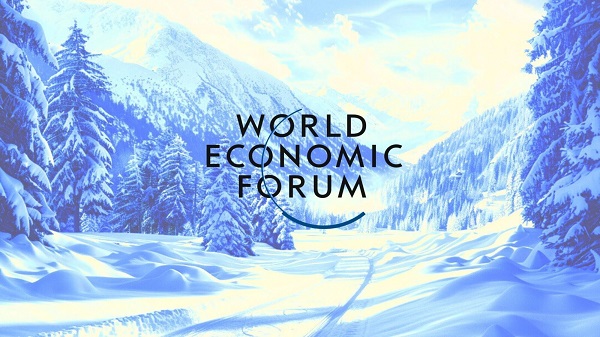Censorship Industrial Complex
WEF Davos 2025: Attendees at annual meeting wrestling for control of information

World Economic Forum’s Prioritizes “Disinformation” Over Economic and Global Stability Threats
|
The World Economic Forum (WEF) is gearing up for its Davos meeting, set to take place January 20-24, and the group has now released the Global Risks Report 2025.
The report is based on “insights” from the Global Risks Perception Survey that take into account the opinions of 900 “global leaders” across business, government, academia and civil society, the WEF said. The report reflects the unrelenting drive still present in many corners of the world and among political elites to push what they consider “disinformation” to the top of this agenda. And so the WEF paper talks about “armed conflict, environment, and disinformation” as “top threats” this year. And that, as the authors note, from their point of view leaves economic risks as having “less immediate prominence.” Meanwhile, “mis/disinformation” is ranked higher as a threat and that has happened two years in a row. This reads like another instance of taking an alarmist approach to “disinformation” (which then comes in handy when pushing all sorts of controversial policies, affecting online speech, security, and technology development). The WEF report elevates “disinformation” to a “persistent threat to societal cohesion and governance by eroding trust” – and even “exacerbating divisions within and between nations” and “complicating” ways to cooperate on ending international crises. And, when AI is thrown into the mix in its “adverse” form – “disinformation” underpins rising geopolitical tensions. The way the report frames the issue of disinformation, that seems to be the only thing standing in the way of world peace. While creating high drama around “disinformation” is one piece of the puzzle, the WEF also looks at long-term threats, such as to the environment. This, according to the document, will be dominant over the next decade, and this is the language the group uses: “(…) led by extreme weather events, biodiversity loss and ecosystem collapse.” With the threats presented like this, the “solutions” are also very much in line with the WEF mission: promote more and more globalization, even as many countries might be looking to what the group disapprovingly calls, “turning inward.” Instead, the WEF wants them to essentially double down on globalization, allegedly as the only way to “prevent a downward spiral of instability.” One of the goals the WEF promotes – and is also one of the five overall topics of this year’s Davos meeting – is “rebuilding trust.” Now, if only this group would focus more on explaining how that trust was lost. |
|
|
|
You subscribe to Reclaim The Net because you value free speech and privacy. Each issue we publish is a commitment to defend these critical rights, providing insights and actionable information to protect and promote liberty in the digital age.
Despite our wide readership, less than 0.2% of our readers contribute financially. With your support, we can do more than just continue; we can amplify voices that are often suppressed and spread the word about the urgent issues of censorship and surveillance. Consider making a modest donation — just $5, or whatever amount you can afford. Your contribution will empower us to reach more people, educate them about these pressing issues, and engage them in our collective cause. Thank you for considering a contribution. Each donation not only supports our operations but also strengthens our efforts to challenge injustices and advocate for those who cannot speak out.
Thank you.
|
Alberta
Alberta bill would protect freedom of expression for doctors, nurses, other professionals

From LifeSiteNews
‘Peterson’s law,’ named for Canadian psychologist Jordan Peterson, was introduced by Alberta Premier Danielle Smith.
Alberta’s Conservative government introduced a new law that will set “clear expectations” for professional regulatory bodies to respect freedom of speech on social media and online for doctors, nurses, engineers, and other professionals.
The new law, named “Peterson’s law” after Canadian psychologist Jordan Peterson, who was canceled by his regulatory body, was introduced Thursday by Alberta Premier Danielle Smith.
“Professionals should never fear losing their license or career because of a social media post, an interview, or a personal opinion expressed on their own time,” Smith said in a press release sent to media and LifeSiteNews.
“Alberta’s government is restoring fairness and neutrality so regulators focus on competence and ethics, not policing beliefs. Every Albertan has the right to speak freely without ideological enforcement or intimidation, and this legislation makes that protection real.”
The law, known as Bill 13, the Regulated Professions Neutrality Act, will “set clear expectations for professional regulatory bodies to ensure professionals’ right to free expression is protected.”
According to the government, the new law will “Limit professional regulatory bodies from disciplining professionals for expressive off-duty conduct, except in specific circumstances such as threats of physical violence or a criminal conviction.”
It will also restrict mandatory training “unrelated to competence or ethics, such as diversity, equity, and inclusion training.”
Bill 13, once it becomes law, which is all but guaranteed as Smith’s United Conservative Party (UCP) holds a majority, will also “create principles of neutrality that prohibit professional regulatory bodies from assigning value, blame or different treatment to individuals based on personally held views or political beliefs.”
As reported by LifeSiteNews, Peterson has been embattled with the College of Psychologists of Ontario (CPO) after it mandated he undergo social media “training” to keep his license following posts he made on X, formerly Twitter, criticizing Trudeau and LGBT activists.
He recently noted how the CPO offered him a deal to “be bought,” in which the legal fees owed to them after losing his court challenge could be waived but only if he agreed to quit his job as a psychologist.
Early this year, LifeSiteNews reported that the CPO had selected Peterson’s “re-education coach” for having publicly opposed the LGBT agenda.
The Alberta government directly referenced Peterson’s (who is from Alberta originally) plight with the CPO, noting “the disciplinary proceedings against Dr. Jordan Peterson by the College of Psychologists of Ontario, demonstrate how regulatory bodies can extend their reach into personal expression rather than professional competence.”
“Similar cases involving nurses, engineers and other professionals revealed a growing pattern: individuals facing investigations, penalties or compulsory ideological training for off-duty expressive conduct. These incidents became a catalyst, confirming the need for clear legislative boundaries that protect free expression while preserving professional standards.”
Alberta Minister of Justice and Attorney General Mickey Amery said regarding Bill 13 that the new law makes that protection of professionals “real and holds professional regulatory bodies to a clear standard.”
Last year, Peterson formally announced his departure from Canada in favor of moving to the United States, saying his birth nation has become a “totalitarian hell hole.”
Censorship Industrial Complex
Move over Soviet Russia: UK Police Make 10,000 Arrests Over “Offensive” Online Speech

In a nation where 90 percent of crimes go unsolved, the real emergency seems to be someone being offensive online.
|
|
-

 Carbon Tax24 hours ago
Carbon Tax24 hours agoCarney fails to undo Trudeau’s devastating energy policies
-

 Business20 hours ago
Business20 hours agoBudget 2025: Ottawa Fakes a Pivot and Still Spends Like Trudeau
-

 Health20 hours ago
Health20 hours agoTens of thousands are dying on waiting lists following decades of media reluctance to debate healthcare
-

 Business2 days ago
Business2 days agoLarge-scale energy investments remain a pipe dream
-

 armed forces1 day ago
armed forces1 day agoCanada At Risk Of Losing Control Of Its Northern Territories
-

 Business2 days ago
Business2 days agoI Was Hired To Root Out Bias At NIH. The Nation’s Health Research Agency Is Still Sick
-

 International1 day ago
International1 day agoCanada’s lost decade in foreign policy
-

 Opinion15 hours ago
Opinion15 hours agoLandmark 2025 Study Says Near-Death Experiences Can’t Be Explained Away









